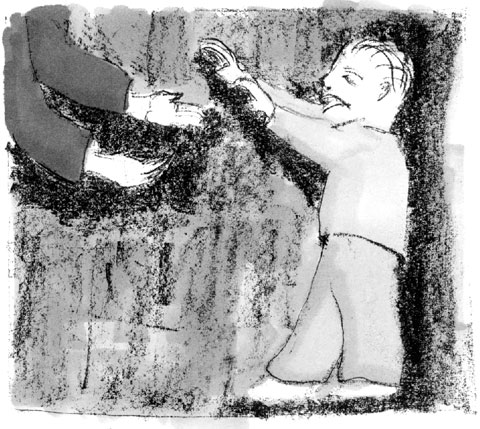
Illustration by Melanie Leong
Arietta Slade, City University of New York professor of clinical psychology and co-director of Minding the Baby, a mother-infant program at the Yale Child Study Center, describes the impact that removal can have on children and parents and the support they need to reconnect:
Q: How does placement in foster care affect children?
A: You want to think about it like this: We survive by being connected to other people. It’s the most natural thing in the world for children to become attached to their parents, to form a relationship with people who can take care of them, love them and provide for them. Given the strength of these connections, then, foster care placement can be extremely painful for both parent and child.
There are a number of factors that can make that separation hard, really hard, or terrible.
First, there are the circumstances that led up to the separation.
Second, it matters how the removal is carried out. Ideally, the world makes sense to children. If the removal comes with no warning, the children don’t understand what’s going on, and everybody’s really upset—that in itself is a major trauma. The child being terribly frightened can lead to a lot of lasting difficulties.
Where a child is placed is another factor. Some children are fortunate enough to be placed with family members who really know them. Some are not. They may experience multiple placements or bad placements. When siblings aren’t able to stay together, that makes it even harder.
The age of the child is also a factor. A child who is very young may have no way of understanding whether he will ever see his mom again, while an 8-year-old can at least understand a little bit about what’s going on and can communicate his feelings to somebody else.
Lastly, what happens when mom and child are reunited makes a difference. When children come home, everyone wants things to be positive. But usually parents and children have such strong feelings that it’s not easy. It’s a time full of hope and dreams, and full of disappointments.
Because of all of these factors, foster care placement and reunification will be a different experience for each child. Some children end up doing well despite all they’ve been through and some have a really hard time.
Q: What do families go through when children come home?
A: Any parent who has had her children removed is going to have a lot of very strong, intense feelings. Some parents might feel relieved, like a mother who knows she has a drug problem so big that she can’t care for her children. But many parents also feel shame, humiliation, or terrible guilt. Parents also are often very, very angry at the foster care system. Oftentimes mothers and fathers don’t have any place to talk about their feelings or get help.
When the children come home, both parents and children usually have such strong feelings that it’s not easy. One thing that happens a lot is that parents feel guilty so they bend over backwards to be a friend. But when parents don’t tell their children no, that doesn’t help a child feel safe. It’s scary for a child to feel that he’s more powerful than his parents.
Other times, parents feel rejected. The parents have all of their hopes pinned on reunion. But then, because the child is angry or traumatized, the child misbehaves, and the parent feels very angry and let down.
That’s why it’s so important to get as much help as possible around both separation and reunion.
Q: How can family therapy help?
A: The most important thing family therapy can do is help repair the relationship between the parent and the child. In Child-Parent Psychotherapy, which I practice, children come in and we encourage them to play. Then the parent, the therapist and the child make sense of the play together.
Let’s say a child has witnessed his mother being beaten. You’d be surprised by how often that violence comes into the child’s play. When it does, mother and child can talk about what it was like when mommy got hit, when the police came, when the boy had to go to the hospital. The parent and therapist work together to address the child’s feelings.
Some therapists only want to see the child alone. But if a child therapist does not involve the parent, particularly in a situation where there’s been a removal and reunion, that child therapist is not doing her job. A child cannot get better unless therapy is focused on helping repair the child’s relationship with his parent.
After parents have had a child welfare case, it can feel scary to put their private business out there and many are skeptical of therapy. Most therapists try very hard not to involve themselves with the child welfare system but you may want to discuss your concerns with your therapist before you start.
It’s also important to find a therapist you feel comfortable with. You may want to see a therapist two or three times. Then ask yourself: “Is this someone I could imagine letting down my guard with?” A therapist who can really listen and communicate at a child’s level can help.
The most important thing for parents is not to minimize the child’s experience. A lot of parents wish their involvement with the child welfare system would all go away, and they convince themselves that being in foster care was no big deal for their child. It’s important to remember that a child’s whole sense of security can be shaken by foster care, and he may need an extra level of support, security, understanding and patience when he comes home.
